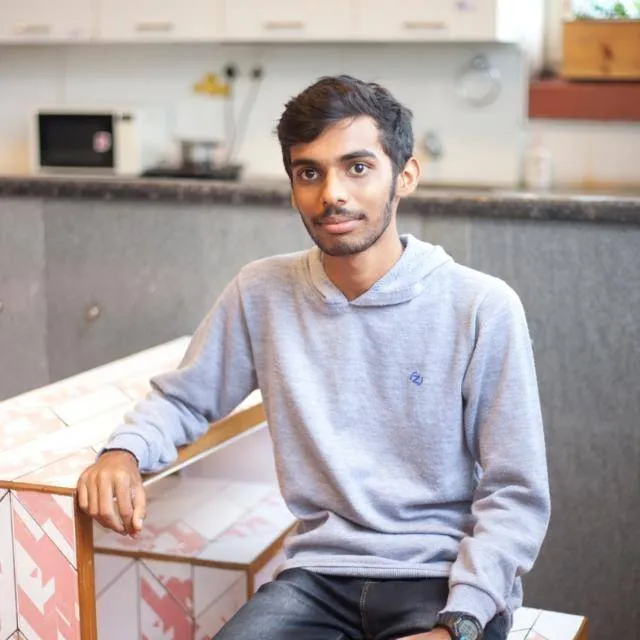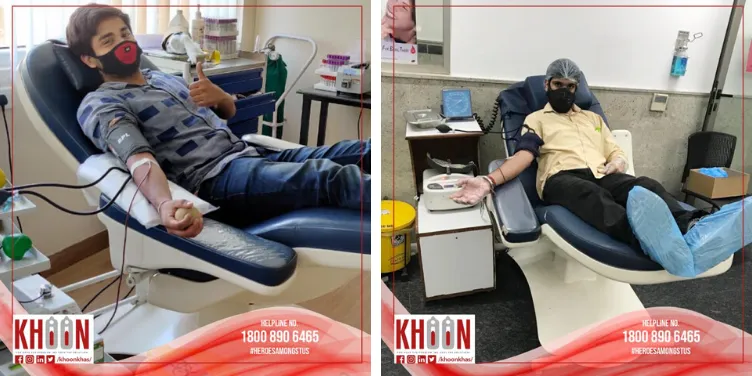Coronavirus: How Khoon is addressing the blood shortage in India
Khoon is a youth-led initiative that is addressing the need for blood donors during a nationwide lockdown. Since March, it has been working with volunteers, and running helplines, at-home blood donation services, and emergency requests.
One of the underlying effects of the lockdown was that all the blood banks in India started running out of stock, and there was a severe blood shortage – leading to a looming life and death crisis for patients. This came as a blow to an already weak and under-resourced blood donation system in the country.

Chethan Gowda, Founder of Khoon Khas organisation
Then, 15-year-old Chethan Gowda from Bengaluru was moved by the death of his favourite teacher due to the unavailability of blood at the right time.
Through research, he realised that India has a shortage of over three million pints of blood every year. Consequently, he started Khoon in 2016 to address this national blood shortage.
Today, Khoon has built a registry of over 1.5 lakh active donors across India, and its national toll-free helpline number (1800-890-6465) services over 60 requests every day.
The organisation has also been a key consultant to Social Good at Facebook on its initiative that connects donors with patients in-need during emergencies. It also advises DKMS, a German-based organisation that addresses the needs of Thalassemia patients for their operation in India.
During the pandemic
As the nation moved into lockdown, blood donation drives were cancelled immediately, throwing the system into a shock. Demand for blood raising form non-COVID-19 related emergency treatment had to be dealt with by a short-circuited supply chain.
“While COVID-19 patients do not require blood, there are lakhs of patients of blood cancer, B thalassemia, and pregnant women, among others whose lives are endangered with the scarcity of blood. To tackle this problem in India, we must provide blood to patients at no cost, transport willing donors at our expense, and ensure safe practices to curb the pandemic,” says Chethan, who has been recognised as an Ashoka Youth Venturer for his empathy and entrepreneurial ability.
The organisation mobilised its existing database of donors and partnering blood banks to launch a 24X7 ambulance service to pick up donors from home to the facility, and back. This has helped more than 2,200 voluntary donors to donate without fear.
Despite blood donation being marked as an essential service and permitted under the Health Ministry’s directives, donors’ fears and about visiting hospitals has been another major challenge.
“The fact is, because of COVID-19 there are so many people who hesitate to donate blood. Please don’t be afraid,” says Vasanthi Hariprakash, a journalist and radio jockey, who donated at Ramaiah Hospital, Bengaluru, at the height of the lockdown in May. She donated a pint to a 55-year-old anaemic woman who had to undergo angioplasty.

Donors at transfusion centres in Bangalore during the lockdown
“We ensured that banks follow all necessary screening and hygiene practices, including wearing masks and sanitising. Through social media campaigns and by sharing stories of people who volunteered to donate blood at their local bank, we have seen more people willing to donate,” says Charu Agarwal from Guwahati, who helped expand Khoon to the Northeastern states, and is now a director of the organisation.
Over the last four years, Khoon has helped save one lakh lives, and is actively working with multiple partners to create a systemic solution for the blood shortage in the country.
According to the organisation, one of the long-term solutions to this is to enable blood banks to use tech and social media to increase walk-in donations.
Edited by Teja Lele
(Disclaimer: The views and opinions expressed in this article are those of the author and do not necessarily reflect the views of YourStory.)








